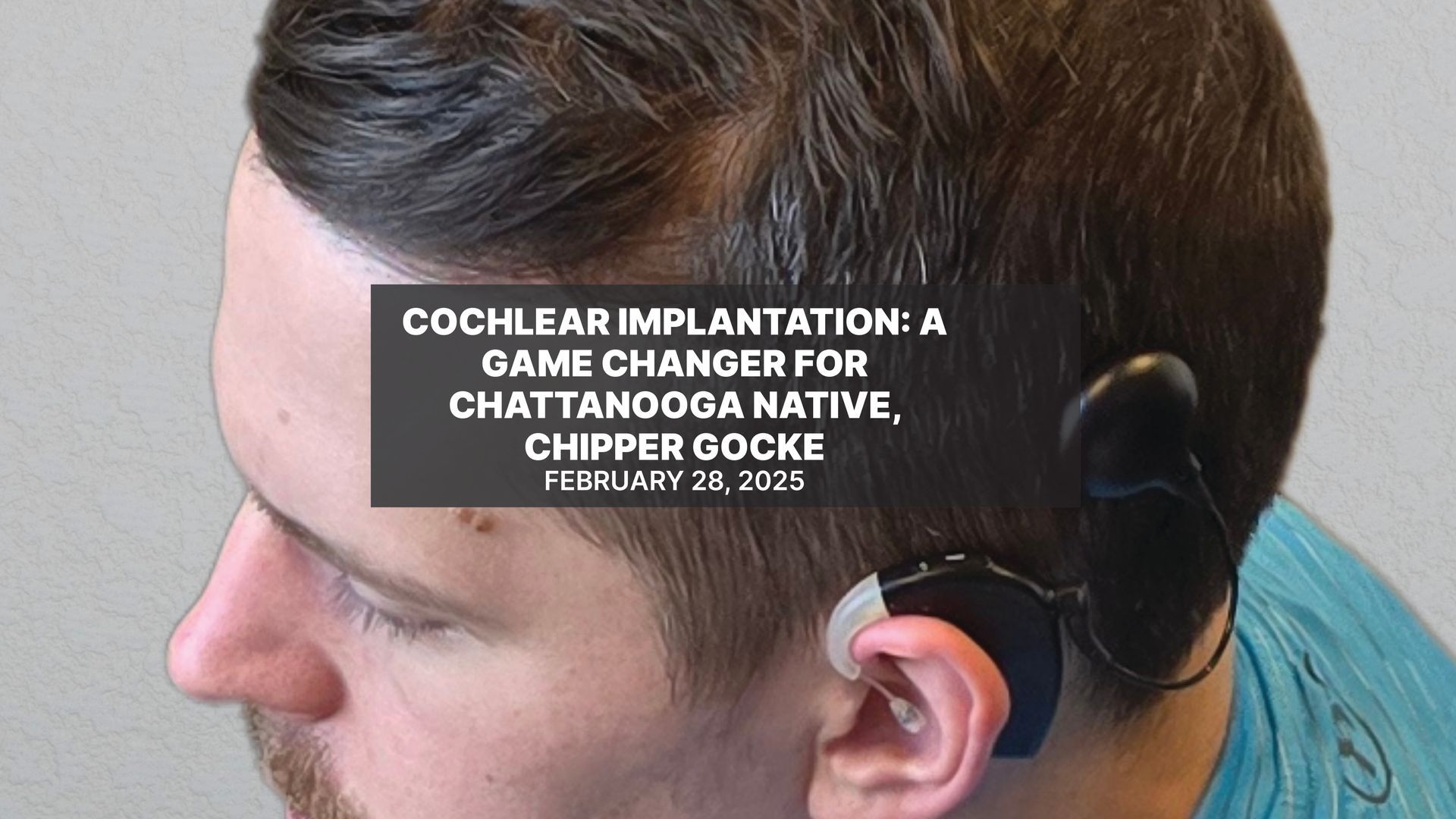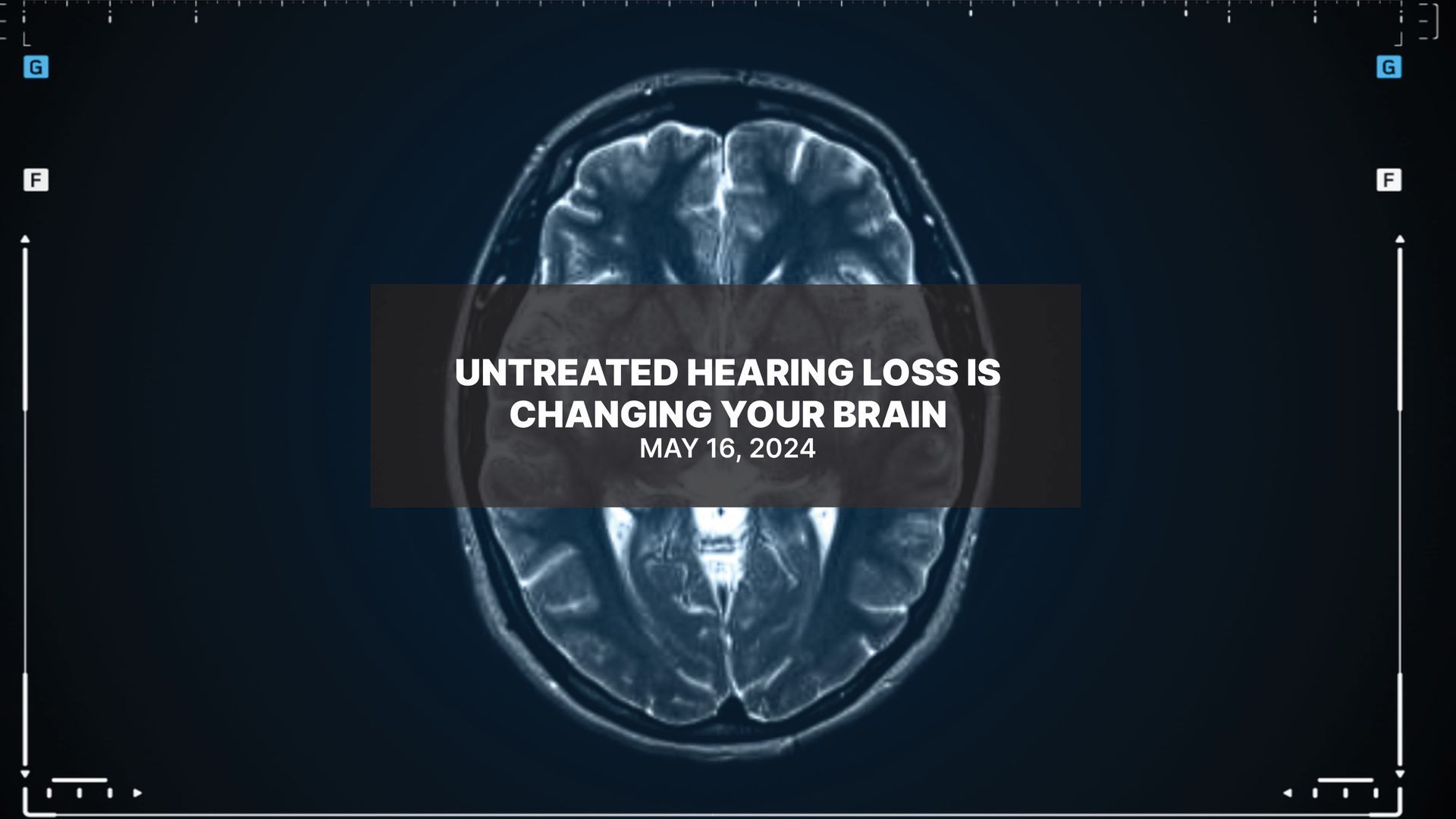Cochlear Implant: A life-changing device

On July 4, 2020, one little girl experienced a life-changing evening that some of us might take for granted. Do you ever find yourself ready to fall asleep on Independence Day but have trouble drifting off because the neighbor, two houses down, is still shooting off fireworks at 11:00pm? Most of us have been there, except those who cannot hear the fireworks. But this year was different for Emmalyn.
Emmalyn was born profoundly deaf. But Emmalyn is able to hear with the aid of cochlear implants. What are cochlear implants? Cochlear implants, which were approved by the U.S. Food and Drug Administration (FDA) more than 40 years ago, are surgically implanted devices that provide sound representation to people who cannot benefit from hearing aids. The implants do not cure hearing impairment; rather, the device directly stimulates the auditory pathway. Cochlear implants replace the function of the damaged inner ear to provide sound signals to the brain for processing.
Cochlear implants have come a long way since the first recipient of the earliest version of the technology received an implant in 1977. In the more than 40 years since that revolutionary milestone, the precision of this technology and process has been fine-tuned, and more than 500,000 people with hearing loss have benefited from cochlear implants worldwide. As is often the case when technology advances, the devices are now smaller and smarter. They are comprised of two components, which work like this:
1) Internal electrode array. The internal electrode array is implanted by an ear, nose and throat surgeon, also called an otolaryngologist, into the inner ear.
2) External sound processor. The microphones on the external sound processor detect sounds and transfer those sounds through the skin to the internal electrode array. Two options are available for the external sound processor: a behind-the-ear option that sits atop the ear and looks similar to a traditional behind-the-ear hearing aid and an off-the-ear option. The internal electrode array then stimulates the auditory nerve directly and transmits the sound to the brain for processing.
Emmalyn has benefited from this breakthrough in technology since her first implant surgery just before her 1st birthday. But she has always had to adjust to going through periods of hearing and periods of deafness. This happens every night when she removes her external sound processors to go to sleep. This has created a hesitation in Emmalyn and a fear of loud, unexpected noises—the kind of noises fireworks would produce. But this year was different, and Emmalyn made a choice she has never made.
Emmalyn decided she wanted to hear what fireworks sounded like. This year Emmalyn left her external processors on. The joy on that child’s face when hearing fireworks for the first time and exclaiming, “They aren’t that loud!” and “It’s not that scary!” brought her parents to tears. And the life-changing technology and surgery of cochlear implants has made that possible. Emmalyn’s mother Nancy said, “I’m continually amazed at how this little girl finds so much joy in life and in the things that we often take for granted. She keeps us smiling and so full of joy while we get to share these special moments with her.”
“Since 2017, Johnson Audiology has provided support for cochlear implant patients by way of initial diagnostic evaluation and ongoing follow-up care,” says Megan Johnson, Au.D. and owner of Johnson Audiology. Dr. Johnson has been an audiologist for more than 17 years, and her experience as a cochlear fellow began as soon as she embarked on her career. She and Johnson Audiology’s Madison Sakaan, Au.D. serve cochlear implant patients through initial candidacy testing and through post-surgical ongoing care.
Click To Paste
Last autumn, access to cochlear implantation reached a new milestone in the Chattanooga area when Johnson Audiology teamed up with otolaryngology surgeons Dr. Doug Leining and Dr. Alex Sokohl from Associates in ENT to give Chattanoogans a complete continuum of care for cochlear implantation. With the surgery performed right here at Memorial Hospital in Chattanooga, cochlear implant patients no longer have to travel to Nashville or Atlanta to receive that component of their care. Cochlear implant surgery was an elective that was suspended for a time this spring because of COVID-19; despite that setback, multiple patients have moved forward with implantation.
Dr. Sakaan says, “Our cochlear implant program has really taken off. Patients are overjoyed that cochlear implantation and programming services are now offered locally in Chattanooga. At Johnson Audiology, evaluation for a cochlear implant is extremely comprehensive, as it should be. We perform a typical hearing test and then test the patient’s ability to understand spoken sentences while wearing hearing aids. When programming those hearing aids, we use real-ear measurements (REM), which is considered best practice, to ensure the hearing aids are optimally set. Qualification for a cochlear implant is then determined by the difficulty a patient has in understanding the spoken sentences when wearing hearing aids.”
While cochlear implants can be life-changing, it comes with its own set of challenges. It can take time for the patient to adjust as the brain “re-learns” the stimulation it is receiving from the implants. And the programming is subject to adjustments over the life of the device. Having an audiologist and Ear Nose and Throat (ENT) physician that you trust is key as a lifelong relationship is formed from the first consultation through every mapping, or programming, session after surgery.
Click To Paste
Madison Sakaan, Au.D. (l) and Megan Johnson, Au.D. (r) work with cochlear implant patients at the Gunbarrel Road location of Johnson Audiology in Chattanooga.
“Helping patients with hearing loss and cochlear implants is my passion,” Dr. Sakaan goes on to say. “Being able to walk with my patients from day one when we evaluate for a cochlear implant, to the day of surgery, to initial activation of the implant, and through the hearing rehabilitation journey is the greatest honor. The team at Johnson Audiology and I are here to help patients during every step of their cochlear implant journey. I believe this is what makes our services here at Johnson Audiology so special. Patients' hearing and quality of life is our top priority, and it shines through in everything we do.”
Cochlear implants are a hearing loss solution for those with moderate to profound sensorineural hearing loss—also referred to as nerve hearing loss—who are receiving limited benefit from hearing aids, such as those who only hear half of what is said in a conversation. Cochlear implantation has become the established treatment for children as young as 12 months who have severe to profound sensorineural hearing loss. Cochlear implants are covered by Medicare, many insurance plans, and typically by Medicaid. However, those interested in cochlear implantation need to be aware that the FDA has set specific guidelines that audiologists and ENT surgeons must follow to determine a person’s candidacy.
For more information about cochlear implantation, contact Johnson Audiology’s Gunbarrel Road location in Chattanooga at 423.710.1432 or Associates in ENT at 423.267.6738.






